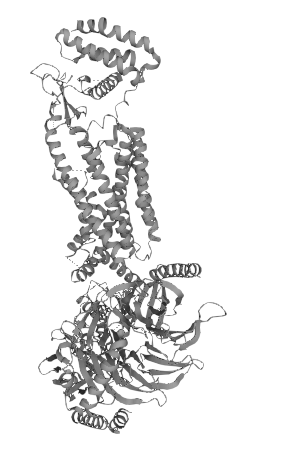Service Line:+86-022-82164980
Address:FL-4, Building A5, International Enterprise Community, Tianjin, China
Email:[email protected]
Procalcitonin (PCT) belongs to the calcitonin (CT) superfamily. PCT is mainly secreted by parafollicular C-cells of the thyroid gland, and can also be secreted by neuroendocrine cells distributed in the lungs and intestines. PCT (< 0.05ng /ml) content is very low or even zero in normal human body, but when inflammation occurs in human body, the PCT of neuroendocrine cells in lungs and intestines, and the content of PCT in peripheral circulation will be increased dramatically.PCT has good stability in vitro and in vivo, and as a new type of inflammation markers, it is simple and rapid, with higher specificity and sensitivity compared with the traditional inflammation indicators, and it can be combined with IL-6 as a new inflammation marker, and can be used as an antitoxin in the body. It can be combined with IL-6 as a systemic infection monitoring and identification indicator.
Calcitonin Protein products are independently developed and produced by KMD Bioscience. The mouse anti-human PCT monoclonal antibody (detection) and (capture) are obtained by immunizing mice with PCT antigen, which has high specificity and small batch-to-batch variation, and can support researchers to carry out the research on the activity of the target of the human PCT protein and the protein interaction research. And it can be applied to lateral flow immunochromatographic assay (LFIA), chemiluminescent immunoassay (CLIA) and enzyme-linked immunosorbent assay (ELISA). KMD Bioscience offers a diverse range of protein products, including recombinant proteins, viral proteins and bacterial proteins, etc. All the protein products provided have undergone strict QC verification and are characterized by low endotoxin content and high purity. With an experienced R&D team and a mature quality management system, KMD Biosciences can provide customized services according to customers' R&D needs, from gene sequence design, protein expression host selection to monoclonal antibody production, to meet the needs of diagnostic raw material development, scientific research and other applications.
The inventory of reagents associated with Procalcitonin (PCT) that KMD Bioscience can offer:
Molecular structure and characterization of PCT
Calcitoninogen (PCT) is a glycoprotein. It consists of 116 amino acids and has a relative molecular mass of 13 KDa. It is the coding product of the Calci gene and is located on chromosome 11.PCT consists of the following three components:① Amino acid calcitoninogen. It contains a 57 amino acid peptide chain that is amino-terminal (N-terminal); ② Immature calcitonin. It is a small molecule peptide containing 38 amino acid residues, and is the intermediate part containing glycine at the terminal; ③ Calcitonin carboxy-terminal peptide I. It contains 21 amino acids and is the amino-terminal (N-terminal) part of the peptide chain. It contains 21 amino acids and is carboxy-terminal (C-terminal).

Figure 1 Schematic diagram of PCT molecular structure
Biological function of PCT
When the human body is infected by bacteria and produces a pro-inflammatory response, the level of procalcitoninogen (PCT) increases in the blood, and the response is earlier than other inflammatory markers, so it is a specific indicator for early and rapid diagnosis of infection.
Generally speaking, there are 2 ways in which PCT is produced by an infected organism; pathway 1 is the direct mode of production, which is stimulated by endotoxins or lipopolysaccharides; pathway 2 is the indirect mode of production, which exists in the form of inflammatory mediators, which are produced by bacterial stimulation of immune cells. For example, signaling molecules such as tumor necrosis factor (TNF-a), interleukin 1 (IL-1), interleukin 6 (IL-6), and interleukin 8 (IL-8) stimulate the body's tissues.
As a supplier of raw materials for in vitro diagnostics, KMD Bioscience is committed to the rapid development and large-scale production of proteins and antibodies for in vitro diagnostics, and establishes stable cell line construction and screening, natural protein extraction and fermentation, recombinant protein customized expression services, and multi-species antibody discovery platform. Based on the above platforms, KMD Bioscience successfully develops many recombinant proteins, antibodies, antibody drug target proteins, industrial enzymes, diagnostic raw materials and other related reagents for scientific research and new drug discovery. KMD Bioscience adheres to independent innovation and breakthroughs in key technologies, and has successively obtained the national patent pilot unit and laboratory ISO9001:2015 quality management system certification and adheres to the continuous optimization to effectively ensure the quality stability of the products in the production process and final delivery. All antibodies provided by KMD Bioscience are subject to stringent testing to ensure their purity and sensitivity for a variety of different diagnostic platforms, such as LFIA, ELISA, CLIA, POCT and so on.